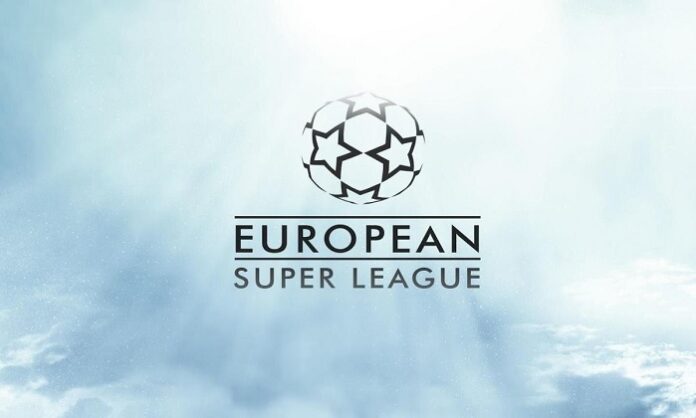However, the plans to bring forward talks with both FIFA and UEFA over the next stage of planning have received a boost following this latest announcement.
According to reports from Mundo Deportivo, the bank has agreed a joint investment collaboration with Key Capital, whose notable investors include prominent Spanish businessman Borja Prado.
$JPM wonder how the stock going to react to being them financing a $6bn league, $MANU already up 10%. It’s sad that only money matters now.https://t.co/pKguZmLWrL
— Andrew (@andrew_lfc18) April 19, 2021
Prado is a personal friend of Real Madrid – and now the European Super League president – Florentino Perez, with interests in major utility and media companies in Spain.
JP Morgan/Key Capital are rumoured to be offering each of the league’s founding members an initial assured €3.6m, however, previous estimates indicate the clubs are confident of securing a higher fee.
La Liga trio Real Madrid, Barcelona and Atletico Madrid are amongst the breakaway clubs alongside three from Serie A and six from the English Premier League.
How much money each club in the European Super League will earn per year
It looks like teams competing in the newly-announced European Super League will be able to earn around €330m annually from participation, according to New York Times.
That’s at least 3 times as much as a club can currently get from winning the Champions League – plus there’ll be a huge television contract to consider on top.
DAZN have been linked to get the TV rights to the Super League, worth a whopping €2.9Bn, while the whole league is being bankrolled by JP Morgan (pardon the pun), who’ll be backing the project with a €6bn figure.
However, DAZN and Amazon have denied the speculation:
🚨🚨 Both DAZN and Amazon have stated that they are not interested in renting out the #SuperLeaque TV rights 🚫⛔️
— Shay Lug (@Shay_Lugassi) April 20, 2021
For now it looks like Bayern Munich, PSG and Borussia Dortmund won’t be among those teams as all 3 pleaded loyalty to UEFA and condemned the idea. With no relegation and a €330m minimum guaranteed income, we wonder whether they’ll reconsider.
So let’s take a look at those clubs that could replace European giants in the Champions League and the Europa League next season.
So next season then:#UCL
🏴 Leicester, West Ham, Everton, Leeds
🇮🇹 Atalanta, Napoli, Lazio, Roma
🇪🇸 Sevilla, Villarreal, Betis, Sociedad#UEL
🏴 Aston Villa, Wolves, Crystal Palace
🇮🇹 Sassuolo, Verona, Sampdoria
🇪🇸 Granada, Levante, Celta Vigo— Adriano Del Monte (@adriandelmonte) April 18, 2021
While the new league would free the clubs from playing smaller teams that bring in lower income, it also opens them to the threat of being ostracized by national leagues and many fans.
Pulling up the drawbridge and awarding certain teams permanent membership move breaks with a founding principle of international football — that anyone can qualify — or fail to qualify — for the most prestigious competitions.
ESL could be a ‘gambit by big clubs to increase their Champions League income’
Senior Media and Telecoms Analyst François Godard was quoted in @MailOnline on the European Super League. Read here: https://t.co/sfaovBExA7 pic.twitter.com/U4JwtPq3X8
— Enders Analysis (@EndersAnalysis) April 20, 2021
One media expert said the breakaway league could be a gambit by big clubs to increase their Champions League income.
“What the breakaway clubs really want is to take control of the Champions League,” said François Godard, a sports media analyst at Enders Analysis.
“It is a very aggressive attempt to get Uefa to sign up to a revamp of the Champions League that gives them more power and commercial returns. The two events can’t co-exist. If the Super League were to launch, the Champions League will just collapse.”




